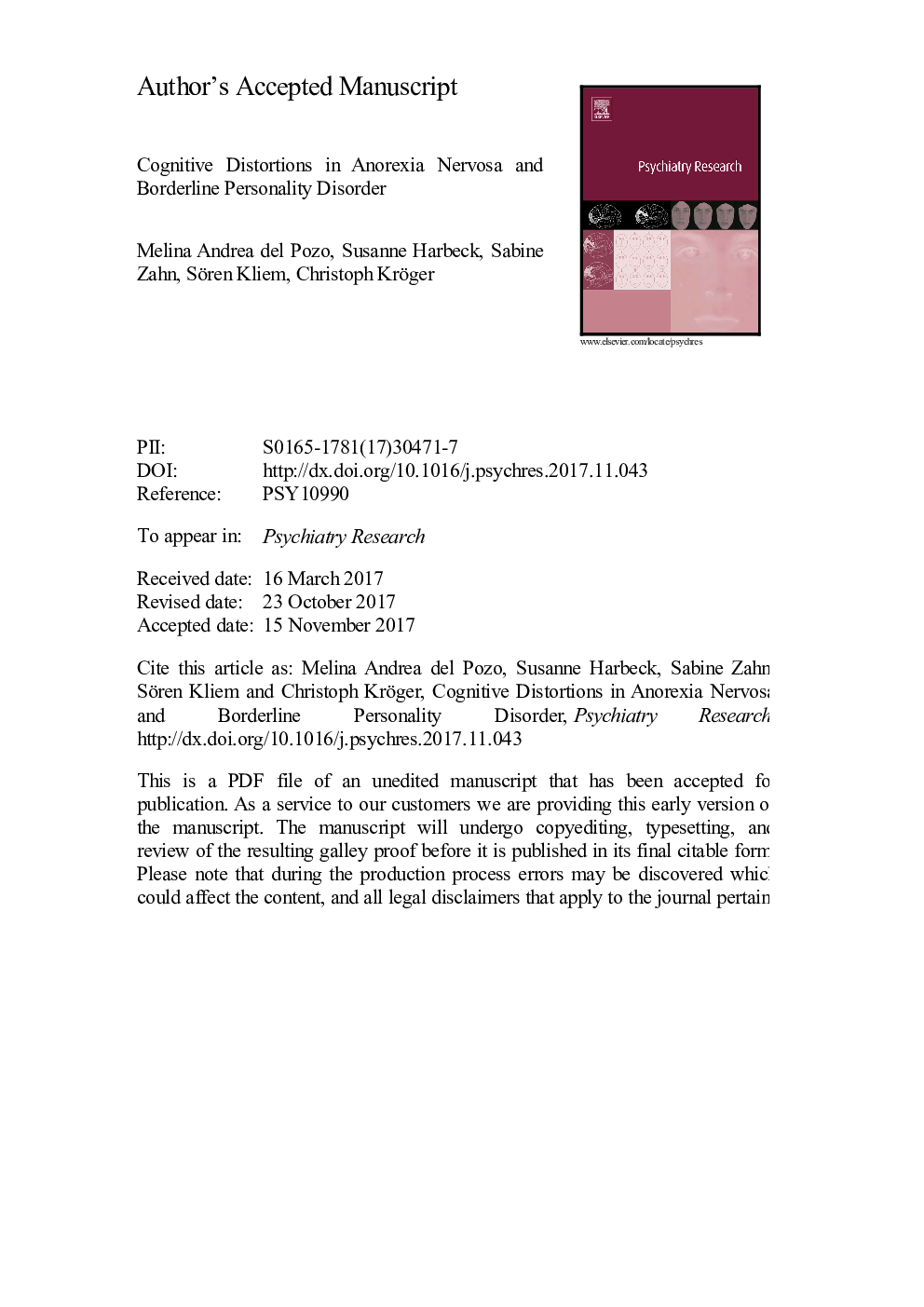| Article ID | Journal | Published Year | Pages | File Type |
|---|---|---|---|---|
| 6811864 | Psychiatry Research | 2018 | 33 Pages |
Abstract
Thought-shape fusion (TSF) is a cognitive distortion associated with eating disorders (ED). A similar distortion, thought-abandonment fusion (TAbF), is assumed to occur in borderline personality disorder (BPD). In this study the specificity of TSF in participants with anorexia nervosa (AN) and TAbF in participants with BPD was examined. 63 patients completed questionnaires assessing the manifestation of trait-TAbF and trait-TSF, as well as relevant psychopathology. Nonparametric conditional inference trees were used to test for cognitive disorder-specificity. Participants with AN exhibited higher trait-TSF-scores than those with BPD, when participants with BPD and a co-occurring AN were removed. Trait-TSF in participants with AN seemed to be disorder-specific. Participants with BPD and a co-occurring AN had the highest TAbF-scores. The specificity hypothesis could only be partially confirmed for trait-TAbF: while participants with BPD and a co-occurring AN tended to have the highest trait-TAbF scores, high mean values could also be found in participants with AN. The results indicate that TAbF is not specific to BPD, but may also play a role in AN. Both distortions seem to play a role in the maintenance of the respective disorders.
Related Topics
Life Sciences
Neuroscience
Biological Psychiatry
Authors
Melina Andrea del Pozo, Susanne Harbeck, Sabine Zahn, Sören Kliem, Christoph Kröger,
